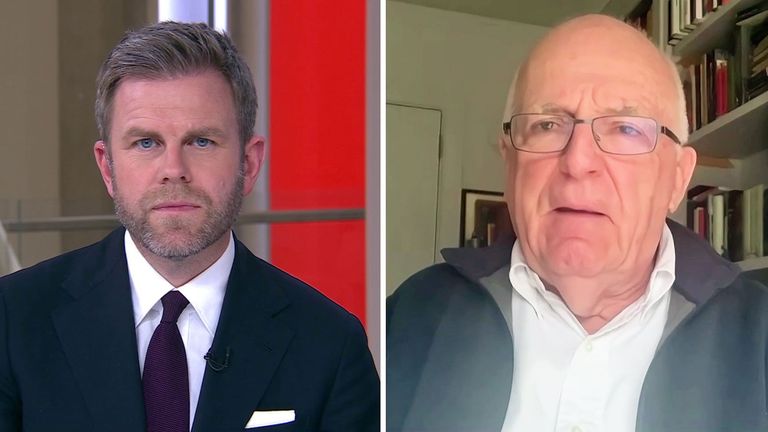The British government accused China of “state-affiliated actors” launching two cyber attacks on the UK.
Speaking in the House of Commons, Deputy Prime Minister Oliver Dowden revealed that the two incidents involved attacks in 2021 on the Electoral Commission, which oversees elections and political finance, and targeted attacks on MPs who were skeptical of China.
He confirmed that the British Foreign Office will summon the Chinese ambassador “to take responsibility for China’s actions in these incidents” and that the UK will work with international partners such as the United States to implement sanctions.
Mr Dowden told MPs: “The cyber threat posed by China-linked actors is real and serious, but it is far outweighed by our determination and resolve to counter it.
“This is how we defend ourselves and our precious democracy.”
Politics Live: Prime Minister issues nuclear warning
According to the National Cyber Security Center, committee eventsA leaked electoral roll was discovered in 2022 that included the names and addresses of tens of millions of voters.
But “reconnaissance” in 2021 targeted the accounts of former Conservative leader Sir Iain Duncan Smith, former Conservative education secretary Tim Lawton, Liverpool crossbench MP Lord Alton and SNP MP Stuart Macdonald Didn’t succeed.
The latter campaign has been attributed to the APT31 group, also known as Judgment Panda or Zirconium, but the specific entity responsible for the campaign against the electoral commission has not been named.
However, the UK Foreign Office has confirmed that it is imposing sanctions on a front company, Wuhan Xiaoruizhi Technology Company, and two participants involved in the operation of APT31, Zhao Guangzong and Ni Gaobin – a move that has been echoed by the US government.
A statement from the Foreign Office said there had been “clearly malicious cyber activity by Chinese state-affiliated organizations and individuals targeting democratic institutions and parliamentarians in the UK and beyond”.
It called on the Chinese government to “call for and take severe action against malicious cyber activities that violate our national security and democracy.”
But earlier on Monday, Chinese Foreign Ministry spokesman Lin Jian slammed what he called “baseless smears,” saying China was “one of the main victims of cyber attacks and has been resolute in stopping and cracking down on all types of cyber attacks in accordance with the law.” Malicious cyber activity”.
The parliamentary security chief briefed the attacked lawmakers on Monday – all members of the Inter-Parliamentary Alliance on China (IPAC), which investigates Beijing’s activities.
Sir Ian told a subsequent press conference that the group had “been harassed, impersonated and hacked by China for some time” but insisted MPs would not be “coerced into silence by Beijing”.
He called for a “watershed moment” for the government to “take a stand for the human rights values and international rules-based system on which we all rely”.
Foreign Secretary Lord Cameron will also brief the 1922 Committee of backbench Conservative MPs later, and the topic is likely to be at the top of the agenda.
Against this backdrop, Chancellor Rishi Sunak faces growing pressure from within his party to take a tougher stance on China, which he has so far refused to view as a threat.
Ahead of Dowden’s statement, the British Prime Minister said: “We are very clear that the current situation is that China is becoming increasingly assertive abroad and increasingly authoritarian at home. This represents an epochal challenge and is very important to us. The greatest national threat to economic security.
“So it’s right that we take steps to protect ourselves and that’s what we’re doing.”
A Downing Street source also told Sky News that Mr Sunak had “always taken a tough stance on China” but that “cutting off all ties” with Beijing was “not a wise move” and that the government had instead adopted an “eyes wide open” approach. its activities.
Follow us on Google news ,Twitter , and Join Whatsapp Group of thelocalreport.in
















